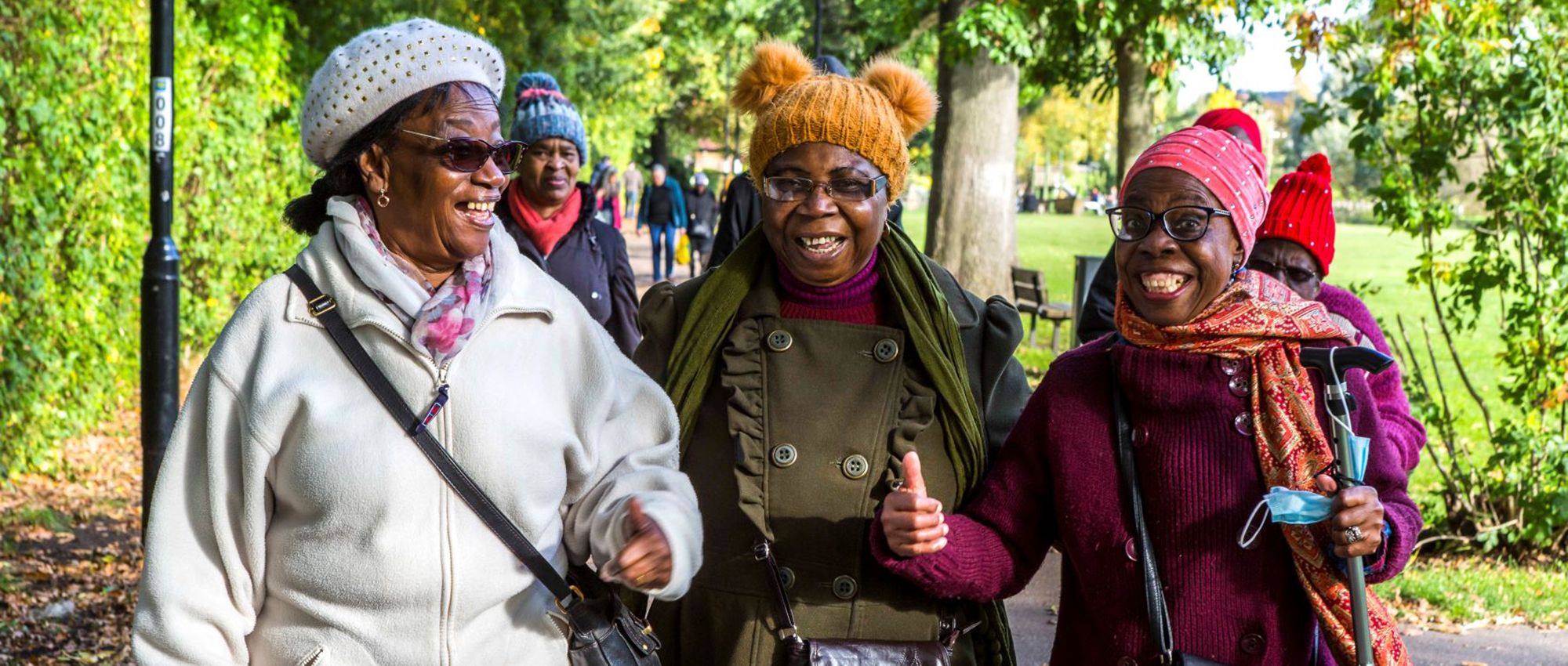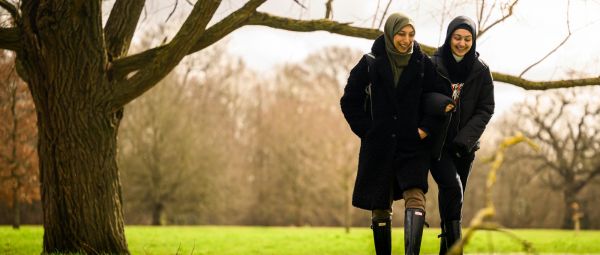Breaking down barriers to countryside access
As the Ramblers steps up its campaign to broaden access to the British countryside, conservationist and land access campaigner Nadia Shaikh looks at barriers that can deter people of colour, and suggests how Ramblers groups can make walks more inclusive

Why access to nature matters
I believe a big part of our sense of identity comes from our relationship with the land. It shapes us profoundly. When I talk to people who have moved to the UK about the things they miss about home, it's most often food, nature and landscapes.
Look at religion, poetry, art, songs, they’re all enriched with nature. In telling stories, we use nature, it's the greatest metaphor. To observe the calm before the storm, or the rising sun, or birds in their courtship behaviour or territorial disputes, helps us understand how we feel. Everything is enriched by the tapestry of nature around us, and I believe it helps us cope.
But 11 million people in the UK don't have nature-rich green spaces big enough to wander in. How do they cope?
Being out in nature should come naturally to all of us, but there are so many systemic barriers. We’re born into a system of land ownership; of fences and signs; of the countryside not being for everybody. Centuries of land being taken from people, in the UK and then across the world, has resulted in a vast inequity in land access that’s deeply rooted in racism.
For me, the right to roam is about freedom, community spaces, kinship, a deep sense of belonging, and the responsibility that comes from that.

Representation and identification
Working in nature conservation, the least diverse sector after farming, I started looking at addressing issues of inequity around Black and people of colour coming into conservation as a career. This led to looking more broadly at the culture in the conservation movement, with its predominantly white, middle-class organisations.
Among certain sections of society, it’s second nature to be out in the countryside enjoying country pursuits. ‘The great outdoors’ is a strong cultural thread for many white British people. If you've always felt that space is for you, that you’re welcome there, it can be difficult to understand how much representation matters. If you don't see yourself represented, you feel you don’t belong. Hence shocking statistics like Black people and people of colour being just 1% of visitors to Britain’s National Parks, even though we're almost 15% of the population.
Indirect racism and systemic problems disadvantage minorities and marginalised people. Anyone should be able to walk out of their front door and have a sense of belonging and freedom in the natural environment. It goes deeper than broadening the right to roam, because cultural barriers need to be broken too.
When you’re part of a friendly walking group enjoying easy access the countryside, the problems aren’t always obvious. It’s incredibly hard to see barriers that don’t stop you personally. A good first step is to acknowledge this massive chasm and make efforts to bridge the divide.
Understanding racism
Recently I was talking to a white person about racism and microaggressions and they said: ‘I don't see a problem. I don't see racism. We're not a racist country.’
I didn’t know where to begin!
Sadly, we do live in a racist country. And it stands to reason that if you are a minoritized group, you carry that racism around with you through your life. Your every footstep is a little bit heavier because you're a little bit more aware of others’ gaze.
Racism isn’t easy to explain, especially to people who don’t feel they’re actively racist. It’s more often microaggressions, indirect racism and systemic problems that disadvantage minorities and marginalized people. When somebody says: ‘This is hard for me,’ believe them and listen. It’s about showing kindness to any marginalised group.
Cashflow and the cost-of-living crisis
Money is another massive barrier. The UK has one of the biggest gulfs between rich and poor, and Black and minority ethnic households are twice as likely to live in poverty than their white counterparts. If you’re dealing with the day-to-day burden of living in poverty, the last thing on your mind is going for a hike.
Spending time in nature is increasingly a commercial activity rather than a way of life. Instead of just going for a wander for the sake of wandering, you do ‘a hike’, or ‘a climb’, or ‘a bike ride’, and you’re expected to have the ‘right map’ and the ‘proper equipment’.
As a rambler, you might perceive the countryside as free and accessible, but it’s not to a lot of people. As we enter a cost-of-living crisis, finances are getting tighter for many, putting nature further out of reach.
How can Ramblers members help?
If Ramblers groups want to address these issues, a great starting point is a website called All the Elements, run by an incredible woman called Soraya Abdel-Hadi. It’s a coalition of outdoor organisations for minoritised groups. Why not see if there's one near you? Reach out and ask: ‘What resources are you lacking?’, ‘How can we support you?’
Look at your structure for setting up walks. Where do they start from? Could you help somebody get there? Could you help them be better equipped? How can you let them know they’re welcome? Discuss in your group why somebody might be anxious about walking in the country. What if there's no toilet? What if I don't have the right footwear? Where can I pray?, and come up with solutions.
Think about how you communicate with potential members and where you could make new inroads. Do people understand what Ramblers walks are about and the benefits of getting involved? Reach out to other community groups, could there be collaborations? Start by just arranging to chat, it could be the first step to making a big difference to people’s lives.